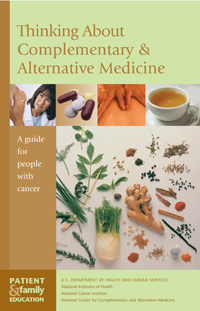Meetings and Events
Spring 2013
Vol. 8, Issue 1
Winter 2013
Vol. 7, Issue 2
Spring 2012
Vol. 7, Issue 1
Spring 2011
Vol. 6, Issue 1
Fall 2011
Vol. 6, Issue 2
Spring 2010
Vol. 5, Issue 1
Fall 2010
Vol. 5, Issue 2
Spring 2009
Vol. 4, Issue 1
Fall 2009
Vol. 4, Issue 2
Spring 2008
Vol. 3, Issue 1
Fall 2008
Vol. 3, Issue 2
Fall 2007
Vol. 2, Issue 2
Winter 2007
Vol. 2, Issue 1
Summer 2006
Vol. 1, Issue 2
Research Resources
NIH Launches Clinical Research Trials Portal Website on NIH.gov
Are you interested in learning more about clinical research trials and how to participate in such experiments, but don’t know where to find reliable information? In an effort to help the general public understand the merits of clinical trials research, the NIH has launched a new website, “NIH Clinical Research Trials and You.”
The new portal describes clinical trials explaining how they help advance scientific knowledge, the phases of clinical trials research, potential risks and benefits associated with participation, and the ethical protection of research subjects. The website also features short testimonials from both researchers and volunteers regarding their involvement in clinical trials research. Promotional materials that help raise awareness of the benefits of participating in clinical trials research are also available for health care organizations.
Visit “Clinical Trials and You” (http://www.nih.gov/health/clinicaltrials/index.htm) to learn more about clinical trials or to find a clinical trial near you.
The Latest Information from NIH and NCI is Now Just a Tweet, Like, and Click Away

Whether you prefer to tweet, like, or view the latest cancer information, NIH and NCI maintain numerous online resources to keep you up-to-date on new cancer research and guidelines. In fact, the use of social media has continued to expand at the NIH and NCI, as more offices and centers have established Twitter accounts (or feeds), mobile applications (apps), Facebook pages, and YouTube videos and channels. The use of such sites enables patients, clinicians, and researchers to satisfy their growing appetite for up-to-the-minute information on cancer research.
As a patient, researcher, or clinician, you are bound to find an NIH-hosted online resource to meet your needs. The Office of Extramural Research’s Twitter account, @NIHforFunding, helps researchers learn about new funding announcements, requests for information, upcoming workshops, and changes made to new and existing grant solicitation programs. Another useful Twitter feed is the National Library of Medicine’s account, @PubMedHealth. This feed updates followers with the latest scientific publications and provides links to article abstracts when available.
Similar to Twitter accounts, mobile apps are quickly establishing their presence among the health communication efforts of the NIH. The NCI has recently released m.cancer.gov, a mobile version of its website (http://www.cancer.gov). This new app is available in both English and Spanish and features a number of cancer-related resources, including information about cancer types and treatment side effects. The Office of Dietary Supplements (ODS) has also re-released their mobile app, My Dietary Supplements, which allows users to manage their use of vitamins, herbs, and other supplements. The new version now operates on more smartphone platforms, including the iPhone and Android, and is available to download for free from http://ods.od.nih.gov/About/mobile/aboutmyds.aspx.
Several social media accounts also exist with cancer patients, survivors, and their caregivers in mind. For example, the National Library of Medicine has created a Facebook page dedicated solely to caregivers of all illnesses,https://www.facebook.com/NLM4Caregivers. This page provides a wealth of information about to caring for a sick loved one, understanding medical terminology, and the importance of taking care of one’s own health as a caregiver. To obtain health information, two Twitter accounts worth following include @NCIPrevention, the NCI’s Division of Cancer Prevention Twitter feed that discusses early detection, cancer risk, as well as chemoprevention and @medlineplus, Medline Plus’s account that presents daily medical updates on health and wellness.
The NCI’s YouTube channel (http://www.youtube.com/ncigov) is constantly evolving, with new videos posted frequently to the site. These short videos aim to educate the public on the mission of the NCI, the research it supports, clinical trials, and common cancer topics. Several of the posted videos are also available in Spanish.
To view the complete list of new media resources available at the NCI, visit http://www.cancer.gov/global/newmedia or visit each office’s website to learn more about their presence on Facebook, Twitter, and YouTube.
CAM Patient Education Booklet Available from NCI

NCI’s Thinking About Complementary & Alterative Medicine: A Guide for People with Cancer booklet is one of the most popular complementary and alternative medicine (CAM) patient education materials available from the Institute.
It contains information that patients and caregivers can use to understand the types of CAM modalities available to them before, during, and after cancer treatment(s). The booklet also includes questions to ask your doctor about CAM, tips on how to choose the therapies and practitioners that are right for you, and resources for finding more information about CAM.
The book is available in hard copy for free from NCI (up to 20 copies) or for a small shipping fee for bulk orders of 20 or more. Ordering instructions are available from the NCI Publications Locater at https://pubs.cancer.gov/ncipl/ detail.aspx?prodid=P042 or by calling 1-800-4-CANCER (1-800-422-6237) and mentioning the book title or inventory number (P042).
This resource is especially useful for hospital patient education departments, private practices, community centers, and any other locations where patients or community members would be interested in learning more about CAM.





